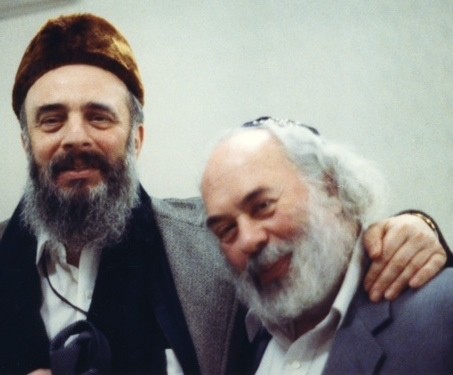Birnbaum-Carlebach connection: Am Yisrael chai!
In a statement sent to this column soon after the passing of Yaakov Birnbaum, his long time associate in the struggle to save Russian Jewry from communist oppression, Glenn Richter, wrote:
“We were much appreciative of Rabbi Shlomo Carlebach’s involvement, from the beginning, of the Soviet Jewry movement. He composed for us the ‘Am Yisrael Chai’ tune in 1965, which quickly became the anthem of the movement, both here and in the USSR. Shlomo did not pull punches in his condemnation of the Jewish establishment’s early relative silence on responding in a meaningful way to the spiritual destruction of our Russian brethren. We loved Reb Shlomo and I think he saw SSSJ as a movement which gave young Jews direction and purpose, as well as in some way compensating for most of Jewry’s silence during the Holocaust.”
This heartfelt testimony by Richter to a little known chapter in the Russian Jewry struggle will be the subject of this week’s continuing tribute to the life’s work of the late and beloved Yaakov Birnbaum.
In his monumental biography entitled, “Rabbi Shlomo Carlebach: Life, Mission, and Legacy” (Urim Publications, 2014), Dr. Natan Ophir [Offenbacher] states the following:
“The Student Struggle for Soviet Jewry (SSSJ) was founded by Jacob Birnbaum in April 1964. Popular folk songs had proven their importance in the American protest movements, and similarly, Birnbaum sought to create SSSJ songs. For that purpose, he recruited Sherwood Goffin and Shlomo Carlebach. Birnbaum asked Shlomo to compose a tune using the words, ‘Am Yisrael Chai’.”
Quoting Birnbaum himself, Ophir continues with the following:
“I vaguely recalled that the song, ‘Am Yisrael Chai’ had been an expression of defiance and hope in Nazi Germany, and after the war it had been sung in Displaced Persons camps. As the Soviet Jewish resistance movement developed, the distinguished Yiddish poet Yosef Kerler composed his own version. However, when I enlisted Shlomo’s aid in 1964, none of these versions were current.”
Further on, Ophir’s narrative continues:

 56.0°,
Overcast
56.0°,
Overcast 




